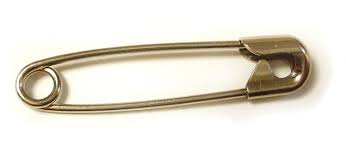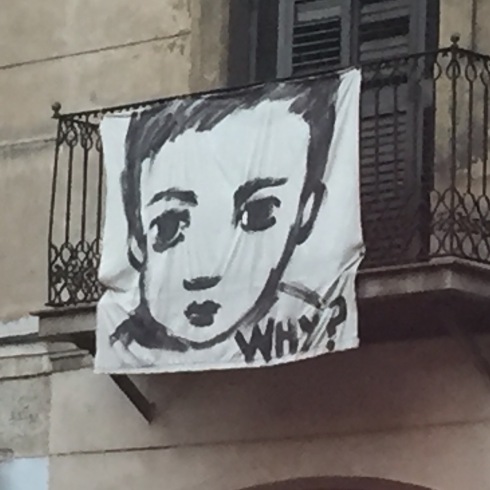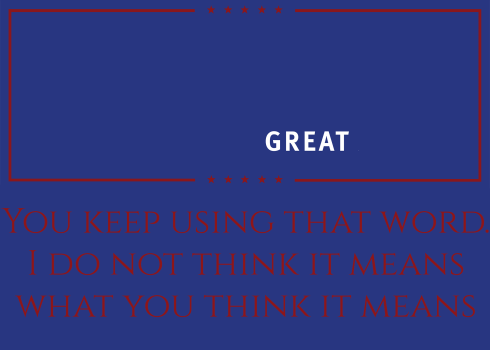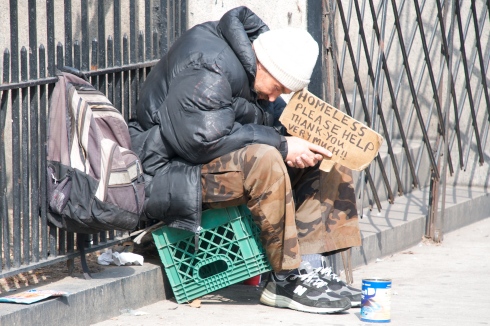
Twas the night before Christmas
America cried out in fear
of foreigners coming from far and from near.
“They might take our jobs, they might take our life!” the people shouted out, overtaken by strife.
Many seemed to forget the savior they claim
was also a foreigner with little to his name.
His parents, unmarried, far from their home,
as foreigners they were completely alone.
No room at the inn, they gave birth homeless, in a manger
to a son whose life would soon be in danger.
The baby, a king, born in poverty.
Lowly, unknown, a king he would be
.
A king who would turn the world on its head,
proclaim good news to the poor,
call for the hungry to be fed.
The embodiment of love, God in human form,
come to save us from the sin with which we all are born.
The way of peace, the way of love,
the way of the cross, and for these teachings he would pay the ultimate cost.
And so we remember, this wet winter night
what happened, what is now and what is not yet.
The hope that was born long ago in a manger
that love that calls upon us to love our neighbor
that peace which passes all understanding
come to Earth in Jesus Christ, our Savior.
Live into love, cast out all fear, act in the hope the Christ child is here.
Tomorrow, the church universal will celebrate the Day of the Holy Innocents. The day when King Herod, terrified of this baby of whom he had been told, this child he was warned would grow up to destroy all that he had built, called for all of the children under the age of two to be killed. Mary and Joseph, having been warned of Herod’s wrath, escaped to Egypt, where they lived until the reign of Herod had ended. Mary, Joseph, and Jesus became refugees, fleeing an oppressive government that threatened the life of their child. Had they not been able to flee, had the neighboring nations thrown up walls, fences, or red tape, we would not have the story from Luke today, the story of Jesus the smart, devoted, yet petulant twelve year old. We would not have the gospels. We would not know of this thing that God had done, coming to earth to be with us. The miracle would have ended just as it was beginning.
As we are given these stories of Jesus in his early days, we are given the story that Jesus was some of the things that we look down upon, some of the things we fear, some of the things we despise. Jesus was homeless. Jesus was a refugee. Jesus was a petulant preteen.
We do not have the details of Jesus’ time in Egypt, but they likely sought out other Jews, people with whom they had a common culture, a community of faith, people whose scriptures taught them to welcome the stranger, to welcome the alien for they had once been aliens. This is a heavy emphasis of Jewish scripture – scripture that we happen to share.
Were Jesus to be born today in a similar way, he could be born to a family in Guatemala, living in fear of gang violence, a family in Syria, Afghanistan, Iraq, South Sudan, Nigeria, or any of the many nations that are embroiled in civil way – a family running for safety, looking to find safe harbor in any nation that would take them – and the current dialogue in our nation would make it somewhere between difficult to impossible to come here. We would build walls, create red tape, to keep him and his family out, because we are afraid. We are so very, very afraid.
And I get the fear. The world seems to be a very dark place right now. As a campus pastor, I am afraid. I fear for my students safety. This fall, the day after the shooting at Umpqua Community College in Oregon, I was walking to campus and heard helicopters above and sirens seemingly all around me. My first thought was oh dear god, no. Not a shooting, not here. I quickly realized that the helicopters were for the fall startup activities on the quad and sirens were unrelated, but for a brief moment, I was terrified. This low grade fear lives within me – I am gathering the campus religious leaders to try to form a unified response to a shooting in the event we ever need one. I get the fear.
But we worship a God who tells us again and again to not be afraid. Fear is the enemy of love. When fear has a grip on our hearts love has a hard time finsing its way in. One cannot simultaneously fear and love ones neighbor. And so God says to us, through the scriptures, the ancient stories of our leaders and prophets, do not be afraid. Do not be afraid, the angels said to the shapers in the field, to Mary, to Joseph, to the prophets — to us. Do not be afraid.
Fear is the weapon of Satan. It is the sword Satan yields to keep us separate from one another, to engender strife, war, envy, hate… all of the things that lead to violence, all of the things that block us from the ability to love as God loves us, the things that cloud our hearts so that we cannot hear that still, small voice inside of us pushing us to love, to trust, to forgive – to be willing to give our lives for the lives of others. Fear keeps us not only from one another, fear keeps us from God.
Fear would keep us from welcoming this homeless, refugee baby into our nation, into our homes, into our lives. And the rhetoric of fear that pervades the conversation in the United States today is working. It is driving us to violate the Christian love we claim to hold so dear, to push away the stranger, to ensure that there is no room at the inn.
These words today from the Apostle Paul are a prescriptive against fear. To begin, we are reminded that we are holy and beloved. You, people of God, are holy and beloved. They, people of God, are holy and beloved. We are called to clothe ourselves with compassion, kindness, humility, meekness and patience. To bear with one another, and to forgive. To forgive, To forgive. Forgiveness which, through the power of God’s astounding love, frees us from hate, from anger, from the desire for retribution. Above all, writes Paul, clothe yourselves with love, which binds everything together in perfect harmony. This clothing sounds awesome. It reminds me of when you get a new pair of sweats and they are soon soft inside and you don’t want to wash them because you know that will ruin the amazing softness. It’s like wearing that, but a softness and comfort that will never wear out, like wearing that all of the time — to work! To the mall! To fancy gatherings! We would always be soft, always comfortable, always ready to love, no matter what the situation. We are called wear these clothes; to let the peace of Christ rule in our hearts.
Fear cannot co-exist with this clothing. This clothing destroys fear and opens us up to be the people of God we have been called to be.
What would it look like were we to let go of this fear? What would it look like were we to let go of our anger, our hate, our suspicion of others, to give and love freely without worrying about what would happen next? To some, it may look like foolishness. But, for real, is this the most foolish thing in which a Christian believes? We believe God came to earth in the form of man, died and then was physically resurrected! So much of our faith can be called foolishness. To believe in God is not foolishness. To love without fear, without asking for anything in return is not foolishness. It is the Christian life. To live this way looks beautiful. It looks like heaven. What if were were to welcome the stranger, the refugee, the homeless, the petulant teenager into our hearts and homes the same way we welcome the sculptures of the baby Jesus that lives in our cresh?
Hope was born in that manger 2000 years ago. Hope that love would be the law of the land, that fear would be no more. Fear cannot coexist with hope – at least not the hope that was born in that manger. That hope is a living hope, an active hope that we live into each and every day as we wait for Christ to return, a hope that calls to us to prepare the way of Christ each and every day, to love as we are loved. This hope is alive, it is calling to us to put down our weapons, to put away our fear, to say yes to love, to say yes to Christ.
Because we are loved. Deeply. Without requirement, without payment, without earning it, we are loved. The proof of this lovelies in a manger, in the child of an unmarried couple without a home, who would soon become refugees, This proof of love lies in the man who would die so that we might live an abundant life, a life free of fear.
Hope is calling. Listen, do not be afraid.




 A sermon on
A sermon on 

 A number of years ago, not long after I moved to Seattle, I was walking through the Capitol Hill neighborhood and a young woman with a sign asking for food caught my eye. I asked her if she would like to eat with me, and she said yes, so we went to Magic Dragon for some wonderfully gross pseudo-Chinese food. This woman’s story seemed to be homelessness’ greatest hits. Her mother was a heroin addict, she was gang raped by some of her mom’s friends at 15 and ran away not long after. She subsequently got addicted to heroin and had just recently gotten herself clean. She was working to get some of her friends clean and trying to get money to go to Hawaii, where she presumed it was a lot better to be homeless since the weather was so much better. Two things she said have stuck with me ever since.
A number of years ago, not long after I moved to Seattle, I was walking through the Capitol Hill neighborhood and a young woman with a sign asking for food caught my eye. I asked her if she would like to eat with me, and she said yes, so we went to Magic Dragon for some wonderfully gross pseudo-Chinese food. This woman’s story seemed to be homelessness’ greatest hits. Her mother was a heroin addict, she was gang raped by some of her mom’s friends at 15 and ran away not long after. She subsequently got addicted to heroin and had just recently gotten herself clean. She was working to get some of her friends clean and trying to get money to go to Hawaii, where she presumed it was a lot better to be homeless since the weather was so much better. Two things she said have stuck with me ever since.
